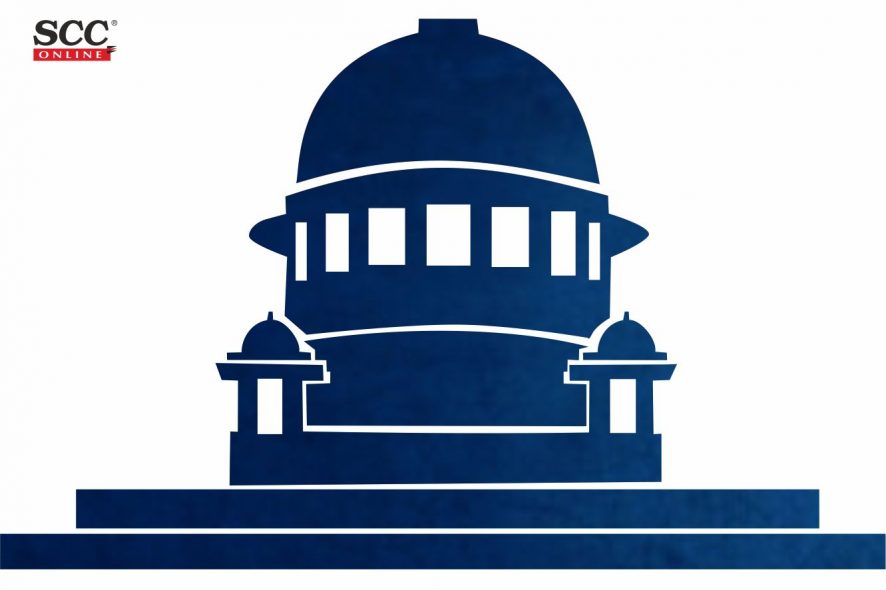Supreme Court: In a case where withing a couple of days of the alleged dowry death of a doctor in Agra, a suicide note was leaked to the newspapers of the city, the 3-judge bench of Dr. DY Chandrachud*, Indu Malhotra and Indira Banerjee, JJ has said that selective disclosures to the media affect the rights of the accused in some cases and the rights of victims families in others.
“The media does have a legitimate stake in fair reporting. But events such as what has happened in this case show how the selective divulging of information, including the disclosure of material which may eventually form a crucial part of the evidentiary record at the criminal trial, can be used to derail the administration of criminal justice.”
Background
The deceased, a doctor by profession, married the accused, also a doctor, in 2014. Over Rs.1.50 crores were spent by the deceased’s father for conducting the marriage. It was alleged that even thereafter, deceased’s husband, his parents, brother-in-law and sister-in-law misbehaved with the deceased on account of dowry. Deceased’s father alleges to have paid money on several occasions by cheque to her in-laws. Also, she was severely assaulted in 2017. In the meantime, the deceased suffered miscarriages on two occasions and ultimately, adopted a daughter. The FIR states,
“… dowry greedy people killed Dipti in [xxx] for non-receipt of dowry and non-fulfilment of the demands, and admitted Dipti in their hospital itself in the almost dead condition, in order to save themselves, but she was not allowed any treatment with the intention of killing her. In order to save the life of Dipti, the applicant took her away to the Sarvodaya hospital Faridabad for treatment, at the earlies.” (sic)
While the Sessions Judge denied anticipatory bail on 21 August 2020, the single judge of Allahabad High Court held that
(a) the FIR prima facie appears to be engineered to implicate the applicants;
(b) there is no corelation in between the various allegations leveled in the FIR; and
(c) the allegations “are general in nature” with no specific role being assigned to the accused.
Analysis
On FIR being “engineered” to implicate the spouse of the deceased and his family
Finding the judgment of the Single Judge of the High Court of Judicature at Allahabad unsustainable, the Court held that the FIR contained a recital of allegations bearing on the role of the accused in demanding dowry, of the prior incidents of assault and the payment of moneys by cheque to the in-laws of the deceased. It aslo referred to the telephone calls which were received both from the father-in-law of the deceased on the morning of 3 August 2020 and from the deceased on two occasions on the same day- a few hours before her body was found.
“The grant of anticipatory bail in such a serious offence would operate to obstruct the investigation. The FIR by a father who has suffered the death of his daughter in these circumstances cannot be regarded as “engineered” to falsely implicate the spouse of the deceased and his family.”
On publicity of the alleged suicide by media
“This is not fair to the accused because it pulls the rug below the presumption of innocence. It is not fair to the victims of crime, if they have survived the crime, and where they have not, to their families.”
The investigating officer has a duty to investigate when information about the commission of a cognizable offence is brought to their attention. Unfortunately, this role is being compromised by the manner in which selective leaks take place in the public realm. Neither the victims nor their families have a platform to answer the publication of lurid details about their lives and circumstances.
“The daughter of the appellant had died in mysterious circumstances. The family had completed the last rites. To expect that they should be scouring the pages of the print and electronic media before reporting the crime is a mockery of the human condition.”
Further, the apprehension of the appellant that the deceased’s husband and his family have a prominent social status in Agra and may have used their position in society to thwart a proper investigation cannot be regarded to be unjustified.
On transfer of investigation to CBI
“The investigation by the UP Police in the present case leaves much to be desired.”
The Court said that it would be a travesty if it were to ignore the glaring deficiencies in the investigation conducted so far. Further,
“The status of the accused as propertied and wealthy persons of influence in Agra and the conduct of the investigation thus far diminishes this Court’s faith in directing a further investigation by the same authorities. The cause of justice would not be served if the Court were to confine the scope of its examination to the wisdom of granting anticipatory bail and ignore the possibility of a trial being concluded on the basis of a deficient investigation at best or a biased one at worst.”
Hence, it is necessary to entrust a further investigation of the case to the CBI in exercise of the powers of this Court under Article 142 of the Constitution.
Directions
(i) The order passed by the Single Judge of the High Court of Judicature at Allahabad allowing the applications for anticipatory bail by the respondents-accused set aside and the bail granted to them stands cancelled; and
(ii) The CBI is directed to conduct a further investigation in the matter.
[Dr. Naresh Kumar Mangla v. Anita Agarwal, 2020 SCC OnLine SC 1031, decided on 17.12.2020]







